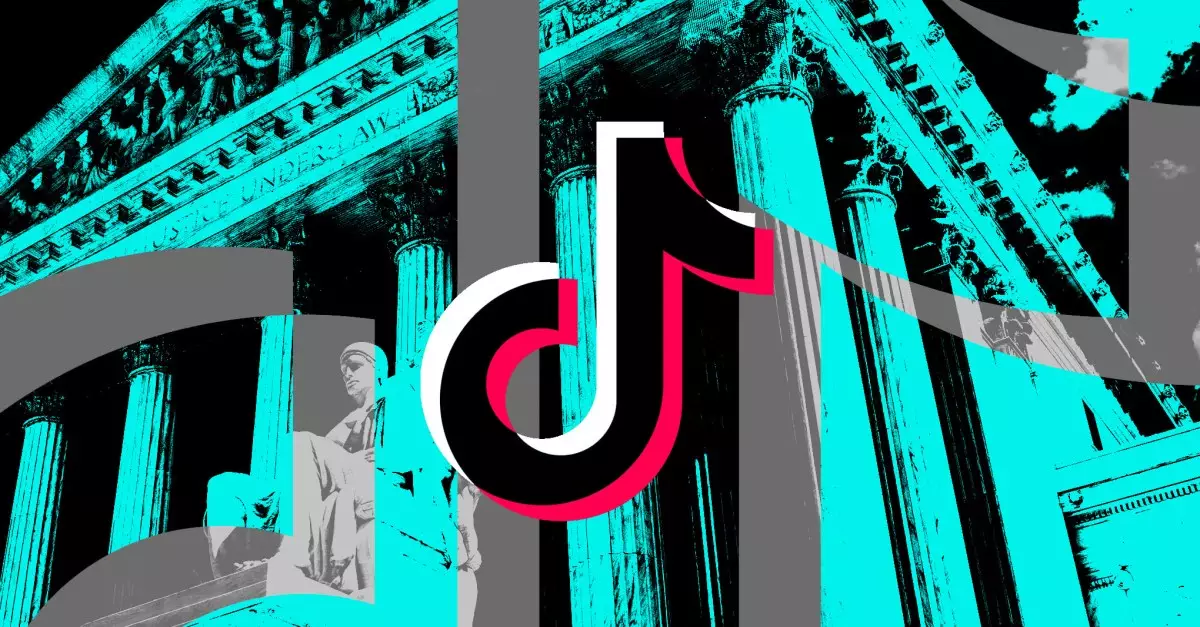The saga of TikTok in the United States has unfolded like a poorly scripted drama, rife with twists, turns, and unexpected character developments. Originally hailed as a success story of globalization and social media evolution, TikTok quickly became a flashpoint in U.S.-China relations. Recent reports suggest an impending resolution to TikTok’s tense standoff with American government officials. Yet, just as hope seemed to blossom, new barriers emerged, exposing the fragility of the social media platform’s foothold in the U.S. market.
A perusal of recent events reveals a desperate race against time, where key stakeholders are scrambling to secure stakes in TikTok. The timing was critical; a pivotal announcement was expected soon, which could have signaled a lifeline for TikTok amid looming bans. As organizations, from tech giants like Oracle to influencers in the entertainment industry, expressed interest in acquiring or investing in the app, it became evident that TikTok’s allure was undeniable. It was a critical juncture that promised both an expansive opportunity for growth and the establishment of regulatory clarity.
The Consequences of Trade Wars
However, President Trump’s uncertain trade policy loomed like a shadow, raising questions about the viability of any final deal. The abrupt onset of tariff discussions sparked fears that potential buyers of TikTok would be thwarted by greater geopolitical tensions. Reports indicated that any agreement for a consortium led by Oracle—which sought to wrest control of TikTok away from its Chinese parent company, ByteDance—was now in jeopardy. The intricate dance of politics and business had reached a crescendo, with implications for numerous American interests.
This tangled scenario reflects the broader issues of tech ownership in an increasingly polarized global landscape. The rapid escalation of tariffs forced Chinese officials to reconsider their stance on ByteDance’s algorithm—for a new U.S.-based entity aligned with Oracle, any such approval would come under the scrutiny of intractable state interests. TikTok was illustrative of a profound dilemma: a platform that thrived on the free exchange of ideas was now ensnared in the complexities of international trade relations.
Potential Paths and Pitfalls for TikTok
It was a bitter irony that the app, once celebrated for bringing people together, faced a mutant strain of nationalism that threatened to divide yet again. As deadlines shifted and statements from the White House straddled the line between optimism and uncertainty, it appeared that TikTok was caught in a precarious balance—pulled between the ambitions of powerful corporate players and the realities of nationalistic regulatory oversight.
If orchestrated correctly, the transition of TikTok’s algorithm could empower it to appear less beholden to its Chinese roots. However, the proposal lacked essential trust and transparency. Even as Trump’s administration suggested goodwill towards resolving this issue via tariff negotiations, there was an unmistakable undercurrent of skepticism—were national priorities sacrificing consumer choice on the altar of international diplomacy?
Additionally, what would happen to TikTok’s loyal user base amid these turbulent discussions? The potential ban would disrupt an estimated 100 million American users; these individuals have formed community networks, influencers, and content creators that are essential for the vibrancy of the platform. Rapid changes at the executive level within tech companies only added confusion to the landscape. Executive turnover often leads to shifts in focus away from innovation, prioritizing short-term survival instead.
The Leadership Shake-Up in Tech
Meanwhile, other tech titans grapple with issues of trust and leadership, disrupted not only by market fluctuations but also by intense scrutiny surrounding their operational ethics and practices. Companies like Meta and Google face internal conflict as their upper management navigates the new boundaries imposed by national policies and global discourse. Employees protest initiatives that muddy the waters of corporate responsibility, exclaiming their unease in the face of top-down mandates.
Transformations also echo across the industry with significant changes in leadership. As executives move in and out of residence, the culture within tech companies becomes increasingly fragile. The result? Organizations are battling both external pressures from national legislation and internal challenges in maintaining a cohesive vision for the future of technology.
Overall, as TikTok continues to orbit the uncertain realms of governance and corporate machinations, the urgent need for clarity remains paramount. Stakeholders on all sides must navigate this evolving landscape with both pragmatism and foresight. The future of TikTok—and its millions of devoted users—hinges on the complex interplay between interests at home and abroad, wrapped in a package that has become emblematic of modern-day corporate diplomacy. The road ahead is fraught with challenges, and how this chapter unfolds will significantly shape the tech industry’s trajectory as it reconciles innovation with regulation.


Leave a Reply